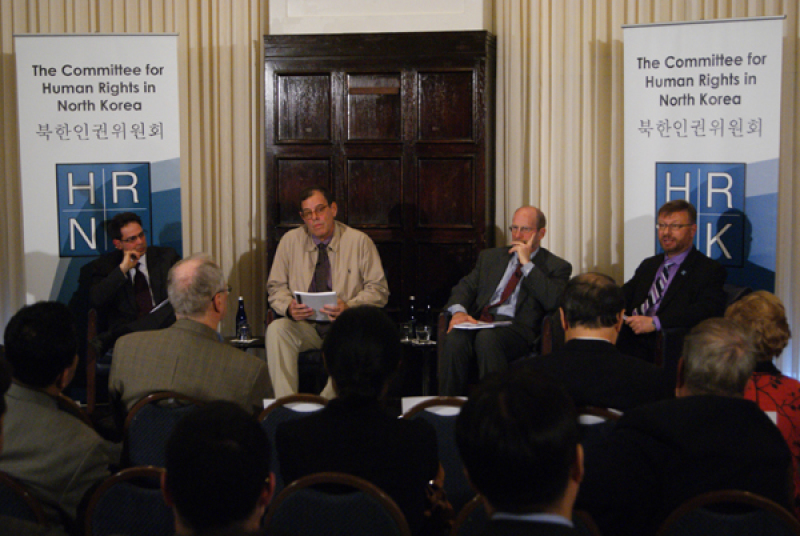

The Committee for Human Rights in North Korea (HRNK) presented its latest report regarding the North Korean government at the National Press Club on April 27.
The Committee for Human Rights in North Korea (HRNK) presented its latest report on the North Korea during one of the events of North Korea Freedom Week (NKFW) on April 27 at 6 PM at the National Press Club in Washington, D.C.
During this presentation of the report, called "Arsenal of Terror: North Korea's Role as a State Sponsor of Terrorism," the HRNK recommended that the U.S. clarify the standards of what defines a country to be a state sponsor of terrorism, and that the North Korean government be re-designated as a state sponsor of terrorism (SSOT). The HRNK added that this greatly affects the human rights conditions in the country.
North Korea was taken off of the SSOT list in 2008 by President George W. Bush.

Joshua Stanton, the author of the report,
"The reason the U.S. did not include North Korea in the list of state sponsors of terrorism is that the U.S. believed that in six months, North Korea did not support terrorist activity, and that North Korea had not developed new nuclear weapons," said Joshua Stanton, who authored the 100-page HRNK report. "However, North Korea not only stole one of Japan's aircrafts, but the country has also continually kidnapped individuals from third world countries. North Korea has been partaking in terrorist activity in various ways outside of the standards pertaining only to weaponry."
Stanton cited a 2009 instance in which North Korean shipments to Iran "and its terrorist clients" were intercepted, which "evidenced the importance of North Korea's role as a supplier of arms to terrorists backed by Iran." He also referred to the Sony Pictures hacking incident, for which Washington accused North Korea as being involved.
Countries are designated onto the list of SSOT by the Secretary of State when they are determined "to have repeatedly provided support for acts of international terrorism," according to the U.S. Department of State. Those that are listed are placed under four categories of sanctions from the U.S., including: "restrictions on U.S. foreign assistance; a ban on defense exports and sales; certain controls over exports of dual use items; and miscellaneous financial and other restrictions."
Cuba, Iran, Sudan, and Syria are the countries that are currently considered state sponsors of terrorism.
"I'm aware that many consider the SSOT list as only being symbolic, but I'm also aware that even that symbolic meaning has a great significance," Stanton continued. "The sanctions against North Korea are much more lenient than those against Iran and Zimbabwe. Re-designating North Korea as part of the SSOT list will help to strengthen sanctions against North Korea as well as improve the human rights conditions in the country."
This report release was the last official activity of the second day of North Korea Freedom Week (NKFW), a week long event hosted by the North Korea Freedom Coalition during which activities such as Congressional hearings, panels, a visit to the UN, and others, are taking place.
Participants of the NKFW will be participating in a panel discussion hosted by the Heritage Foundation on policy recommendations for human rights conditions in North Korea on Tuesday afternoon, and will visit the Embassy of the People's Republic of China on Tuesday night to discuss humane treatment of North Korean refugees.



















